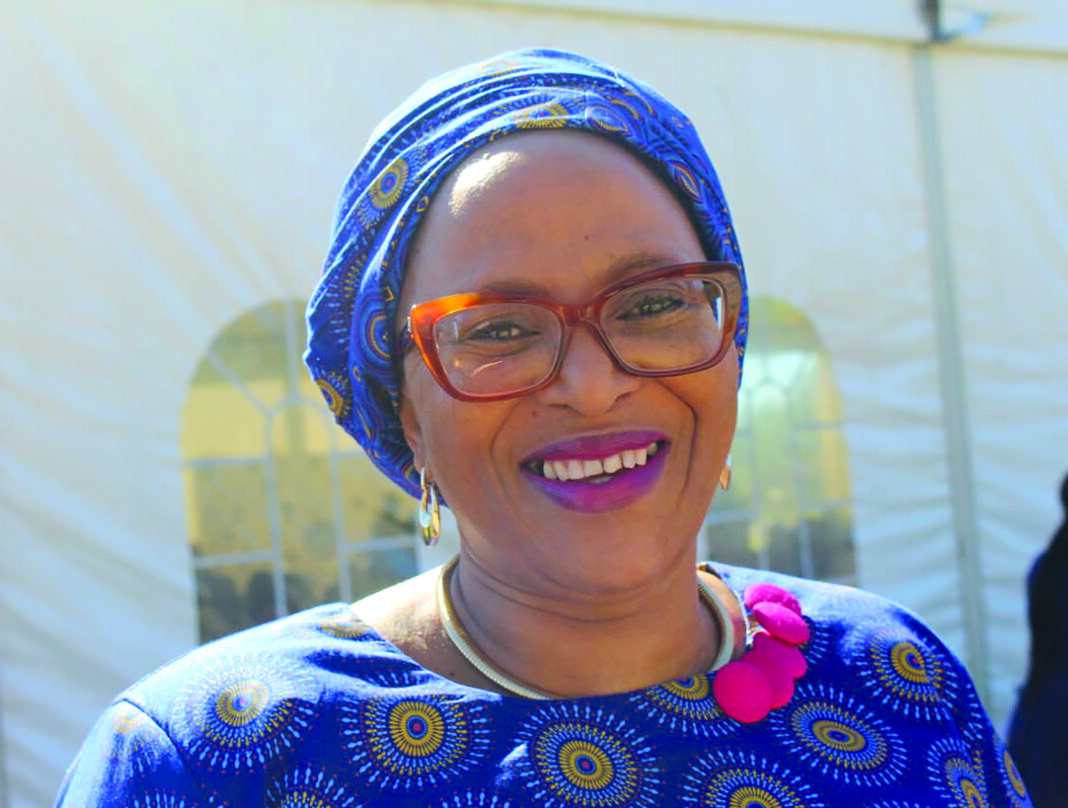- Economic decline laid bare
- US Compact to revive the economy from the brink of death
Ntsoaki Motaung
In a narrative eerily akin to the biblical tale of Lazarus, Lesotho’s economy, once on the verge of collapse, has been resuscitated by an infusion of funds from the United States.
In a sobering assessment of Lesotho’s economic state, Minister of Finance and Development Planning, Dr. Retšelisitsoe Matlanyane, yesterday highlighted the nation’s dire straits.
“Lesotho’s economy is in a critical point of depression, with low growth or no growth at all,” Matlanyane declared, attributing this predicament to pervasive unemployment and historic highs in joblessness.
She was speaking at the celebration marking the commencement of the Lesotho Health and Horticulture Compact, funded by the U.S.
A recent World Bank report titled ‘A Survey of Young Basotho’s Aspirations and Challenges’, presented in Maseru last year, unveiled alarming statistics.
It revealed that a staggering 45 percent of youth aged 15 to 24 were not engaged in education or employment.
Furthermore, the report highlighted that 67 percent of youth exhibited signs of moderate to severe anxiety, with 27 percent reporting disrupted sleep patterns.
Women, in particular, bore the brunt of these challenges, grappling with heightened levels of worry and anxiety.
The report also underscored the profound impact of the COVID-19 pandemic on the youth, exacerbating living conditions, intensifying anxiety levels, diminishing quality of life, and causing severe disruptions to the economy.
Yet, amidst these challenges, Matlanyane yesterday expressed gratitude for the timely injection of funds into the economy.
“This is not a small contribution that the Millennium Challenge Corporation (MCC) is investing in the country’s economy. It has put a lifeline into an economy that was just about to die,” she said.
Together, with $300 million invested by MCC and $22 million invested by the government of Lesotho, the United States of America is partnering with Lesotho to stimulate development and provide financial support for businesses, especially focusing on women and youth.
Additionally, funds will be allocated to enhance irrigation and agricultural production, aiming to bolster climate resilience, particularly for local farmers.
Moreover, efforts will be made to enhance healthcare delivery to hundreds of thousands of people.
“These investments are about more than multi-million-dollar infrastructure, health systems, or regulatory reforms and policies – fundamentally these investments are about people,” Matlanyane said.
“The compact is investing in the economic potential of the Basotho people – families, women, youth – your children and great-grandchildren and future generations to come. Each goal was designed to fulfill our shared goal to reduce poverty through economic growth,” she added.
She said the projects were based on Lesotho’s needs and priorities.
“The Market-Driven Irrigated Horticulture project, which will directly benefit Basotho, is not just about irrigating 1,500 hectors of land; it is about improving livelihoods of the communities and landowners in those selected areas,” she said.
Matlanyane explained that by empowering farmers with modern techniques, market linkages, and sustainable practices, this project aimed to turn fallow lands into thriving orchards and farms.
“The intentional focus on gender equality and inclusion proves commitment to ensure that marginalised groups have equal opportunities. Approximately a year from now, land registration will start to safeguard ownership and land rights, therefore, paving the way for the construction of irrigation infrastructure and dams. MCA and their contractors will work hard to ensure that the infrastructure is completed on time to enable the first production cycle around the year 2027,” she stated.
She underscored the anticipated outcomes of the compact, including a notable reduction in food imports, enhanced self-reliance, increased private sector participation, and substantial job creation “where more than 90,000 jobs will be created over time in different sectors, directly and indirectly thus improving economic growth and reducing poverty”.
Prime Minister Samuel Matekane hailed the $300 million Health and Horticulture investment as a significant boost to Lesotho’s development agenda.
“It brings confidence to the investors and the government that the development journey will be better sooner and bring hope to the young Basotho looking for opportunities and a better life,” Matekane said.
He underscored the potential of this initiative to offer hope and opportunities to the youth, paving the way for a more equitable distribution of wealth and access to services and social transformation that embraces equality among people and strives to uplift marginalised groups.
“There are various opportunities for everyone and most importantly for women, youth, people with disability and other marginalised groups,” he added.
The MCC’s Deputy Chief Executive Officer (DCEO), Chidi Blyden, said the U.S. government was one of Lesotho’s oldest partners, establishing a diplomatic presence immediately after independence.
Blyden said the U.S. has supported Lesotho through key initiatives such as the President’s Emergency Plan for AIDS Relief (PEPFAR) and the African Growth and Opportunity Act (AGOA) which has supported a thriving trade partnership.
“Lesotho has also been a longstanding partner of MCC. We first partnered together in 2008 with a $362 million investment that increased access to basic healthcare for hundreds of thousands of families, built or improved 138 clinics and trained nearly 200 health practitioners in infection prevention and disease control,” she said.
“Today we write a new chapter,” she added.
She acknowledged and thanked Lesotho for pledging essential reforms to ensure the compact’s benefits will be inclusive and sustainable.
“The five reform laws enacted over the past two years provide the opportunity for the compact to advance economic growth and poverty reduction by equally benefiting men and women and by bringing Lesotho in line with international conventions on workers’ rights, health, and safety,” she said




